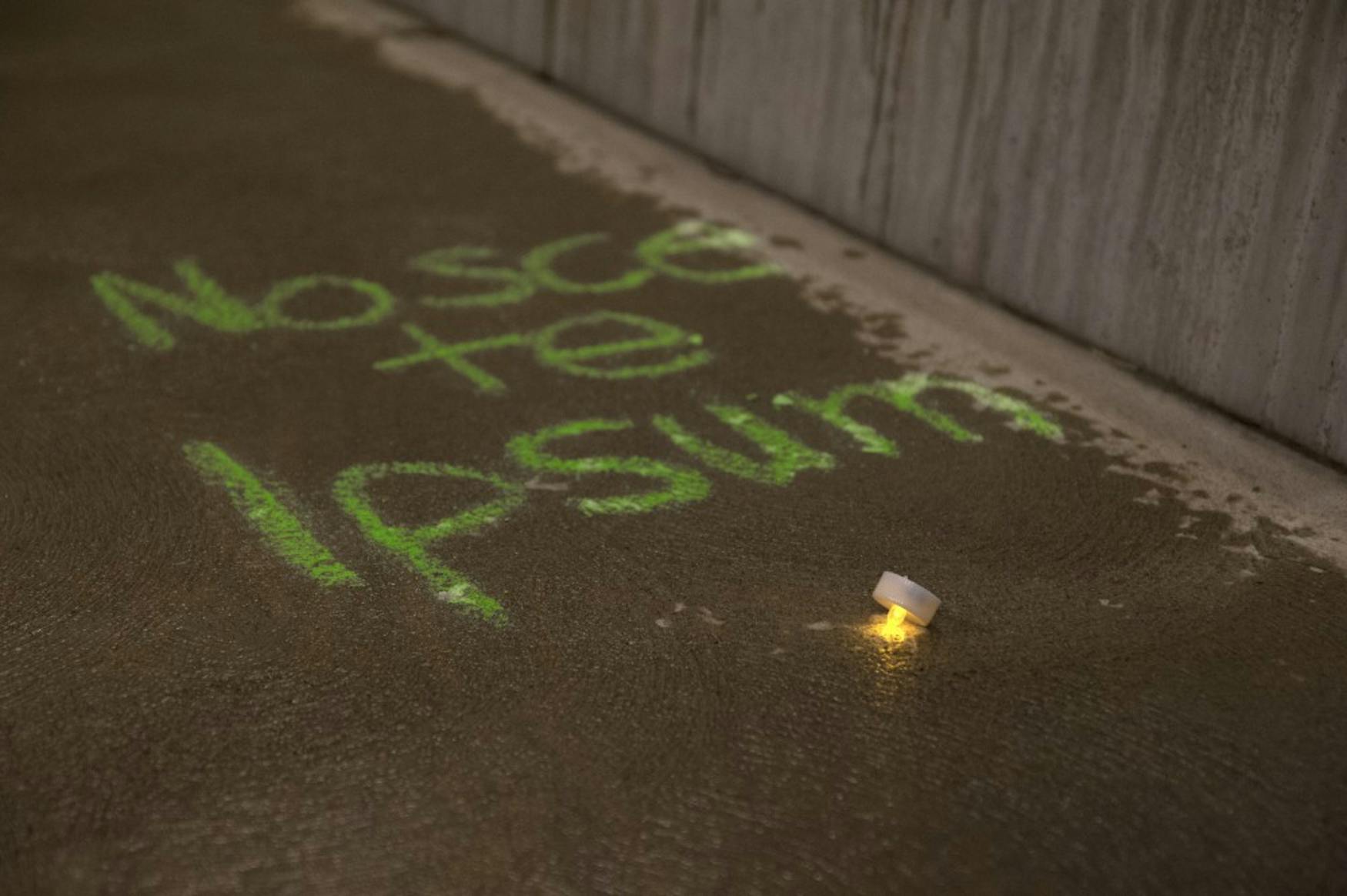Students stand with sexual violence victims
Community members gathered on the Rabb steps at dusk on Thursday for the annual Take Back the Night march to raise awareness of sexual violence and to call for action, the organizers said.
“Take Back the Night is a call for administrators to shift away from and transform their current practices which minimize and disappear the prevalence of sexual violence at this school,” TBTN organizer Kavita Sundaram ’20 told participants, as quoted in a script provided to the Justice after the event. “It is a call for students to exercise our ability to look, to see these patterns of sweeping sexual violence under the rug. Ultimately, Take Back the Night is a call to the entire Brandeis community, to commit collectively and intentionally to ending violence in all its forms.”
TBTN is committed to ending other forms of oppression as well, according to the TBTN organizers. “The work of dismantling rape culture and ending sexual violence is fundamentally tied to the dismantling of racism, transphobia, homophobia, ableism, and all systems of oppression,” said TBTN organizer Saren McAllister ’18, who added that sexual violence disproportionately affects international students, students of color and transgender students. According to Brandeis’ spring 2015 Campus Climate Survey on Sexual Misconduct, students who identified as transgender or as a gender other than male or female reported encountering higher levels of sexual misconduct than respondents identifying as cisgender male or female.
McAllister also referenced the recent dismissal of men’s head basketball coach Brian Meehan and commented that, because of the intersectional nature of TBTN, it was appropriate for TBTN’s banner to be on the Rabb steps beside the banners from last Tuesday’s protest, which called attention to issues of racism on the Brandeis campus.
Before beginning the march, the TBTN organizers communicated guidelines and expectations for the event and discouraged participants from taking photos, creating recordings, touching anyone without explicit permission or making assumptions about anyone present.
“The group’s collective safety is our priority,” Sundaram told the group of approximately 60 attendees.
Throughout the event, organizers wore black Take Back the Night shirts, and representatives from the Office of Prevention Services, the Rape Crisis Center and the Queer Resource Center were identified by glow sticks worn around their necks. Sundaram encouraged participants to turn to these individuals for support if necessary.
The TBTN organizers acknowledged that some sexual assault survivors may not have been able to attend Thursday’s march. “Take Back the Night is also for them. We cannot emphasize enough that taking space for oneself, either by not being at the event tonight or by stepping away at any time, can be a crucial act of self-care,” McAllister said.
Unlike in previous years, the march did not go through residence areas. Instead, participants walked directly across campus from the Rabb steps, between the Bernstein-Marcus Administration Center and the Shapiro Campus Center and past the Great Lawn to the Light of Reason. Sundaram explained that this change was to respect survivors who chose not to attend the march. Last year’s TBTN march did not pass through residence quads due to rainy weather.
The TBTN organizers began the march shortly before 7:30 p.m., and participants followed McAllister and Sundaram along the route. Marchers carried electric candles and alternated between two chants: “Shatter the silence; stop the violence. Ignite the light; take back the night,” and “Admins, we’re calling your bluff; what you’re doing ain’t enough.”
At the Light of Reason, attendees participated in 17 minutes of silence. The time represented 30 seconds for each business day the Rape Crisis Center has been without a profesional survivor advocate, according to the TBTN organizers, who said that the position had been vacant for 34 business days.
During the 17 minutes of silence, attendees wrote chalk messages on the concrete beneath the Light of Reason. Many of the messages focused on supporting survivors, with messages reading “empower survivors” and “believe survivors,” while others referenced larger societal issues — among them, “no means no” and “boys will be held accountable for their actions.” Some messages, such as “34 no more” and “Brandeis admin protects rapists,” placed emphasis on campus-specific issues. Others communicated hope: “I still grow,” “We are powerful” and “I survived.”
The 17 minutes of silence concluded around 7:50 p.m., and the TBTN organizers invited participants to reconvene in the Carl and Ruth Shapiro Admissions Center for a “confidential space to share experiences.”



Please note All comments are eligible for publication in The Justice.